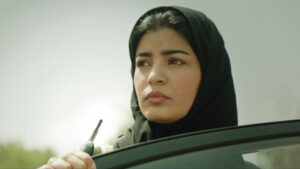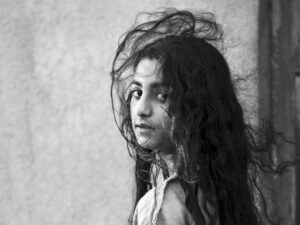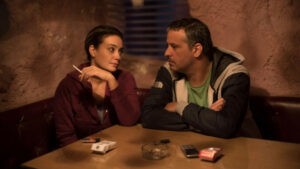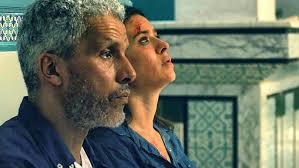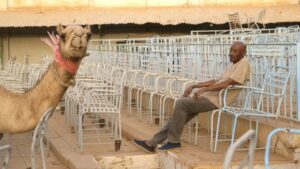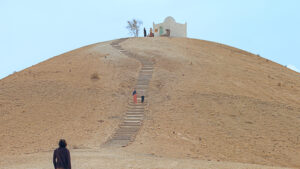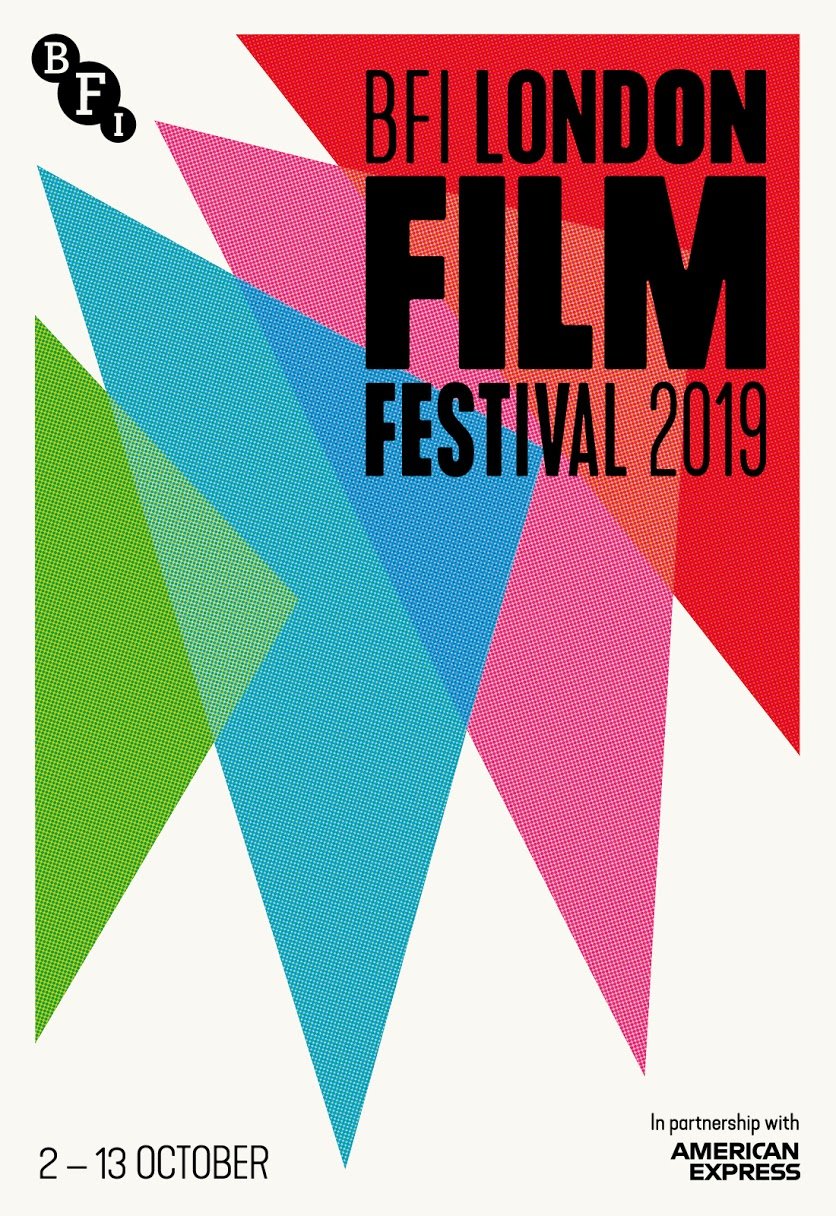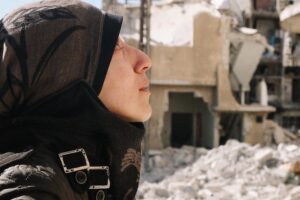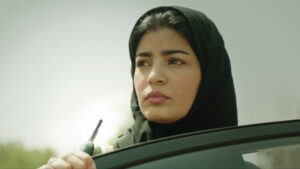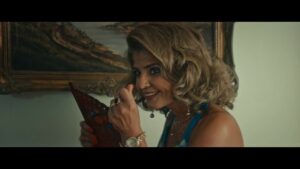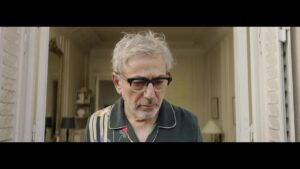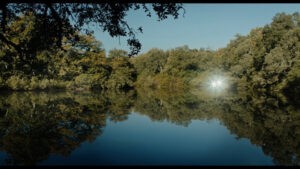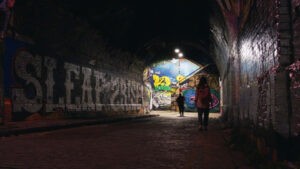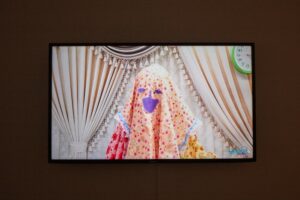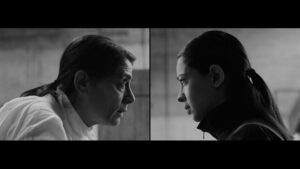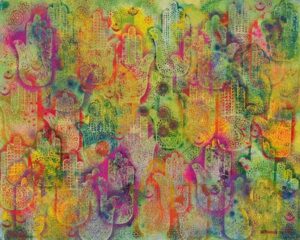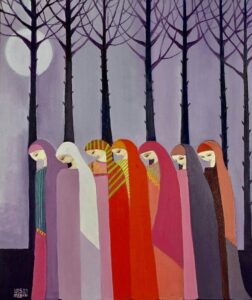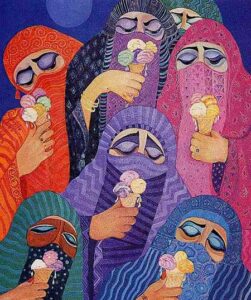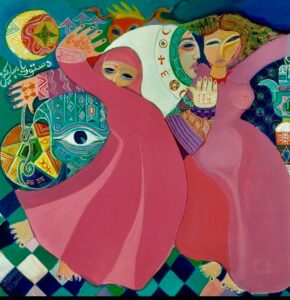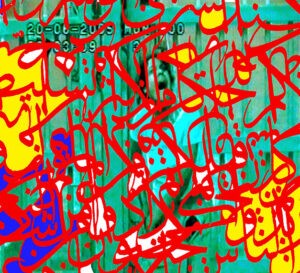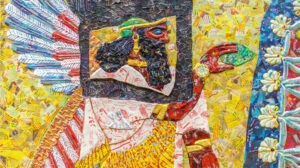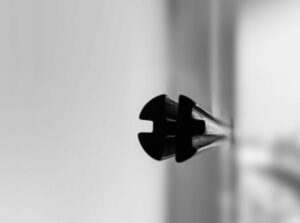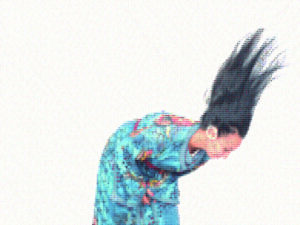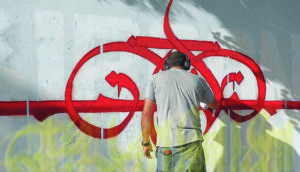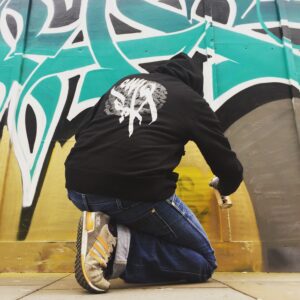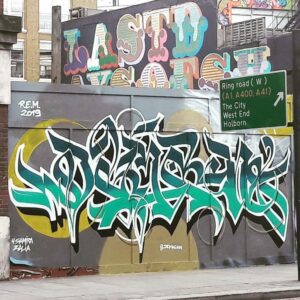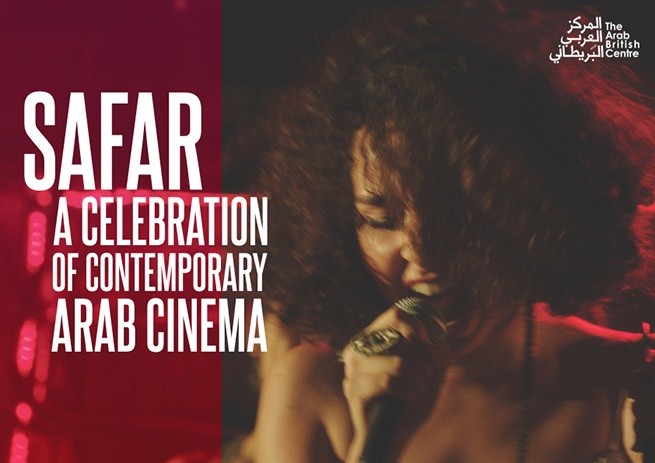If you love independent films with the power to take you on a visual tour of faraway places, then a cinematic festival that carefully selects its titles to represent the best of what is coming out of a particular region is a must see. More of a reason also when that region, the Middle East and North Africa (MENA) region, is experiencing unprecedented turbulence that has been laid out for the world to see and when the dearth of good news has meant a lack of an adequate reflection of what really is going on in the Arab world.
It has been a privilege to preview six of the nine films that will be screened as part of the SAFAR 2016 Film Festival. Now in its third edition and hosted biennially by the Arab British Centre in partnership with the Institute of Contemporary Arts, SAFAR offers everyone – Arab and non-Arab alike – the chance to see some excellent contemporary MENA films recently produced despite the some logistical obstacles faced.
Curated by writer, independent film and visual arts curator Rasha Salti, she has selected a range of productions from Tunisia, Algeria, Morocco, Lebanon, Palestine, Egypt, Kuwait and Syria. Each offers an artistic take on some real and others imagined tales, inspired by true or fictionalised events and played by actors deserving of Oscars. The themes tackled in the selection range from love to war, music, history, religion, politics, philosophy and homosexuality, with the open invite to enter both private lives as well as to learn of public concerns.
Insight From Curator Rasha Salti
I asked Salti to describe the challenges faced by directors and production teams who are working from inside the volatile region. She said: “Filmmakers working in the Arab world face very different kinds of challenges, the ‘volatile’ political context is part of them, but I would not say it is the most inhibitive or problematic. The most serious challenges pertain to the structure of the so-called industry, its near total absence in some cases (in Lebanon, Palestine, Jordan, Syria and Algeria) or its fledgling state in other cases (in Egypt, Morocco, Tunisia).
“In spite of the absence of an industry in the conventional sense, there are professionals, a notable number of which are very talented and very skilled. The films included in this programme are all low-budget and independent productions, also made in spite of the absence of a structure. They are also auteur, art-house films… The most urgent challenge for art-house cinema is exhibition or distribution locally, regionally and internationally. The more serious challenges that are a consequence of the socio-political contexts are censorship and self-censorship.”
I also wanted to know if she had employed a selection criterion in choosing the films. Salti replied: “In the past five or more years, I have observed a change in Arab cinema, not only are filmmakers more resolute in forging their own voice, but also they are fearless about challenging taboos and exploring different cinematic genres, risking a confrontation with authorities but also provoking the more conservative audiences.
“The Safar Film Festival includes two subjective non-fiction films (‘House without Doors’ and ‘This Little Father Obsession’), an absurdist comedy (‘Love, Theft and Other Entanglements’), two psychological dramas (‘Borders of Heaven’ and ‘Before the Summer Crowds’), two socio-political dramas (‘As I Open My Eyes’ and ‘Let Them Come’), a raucous satire (‘Starve your Dog’) and the work of Monira Al-Qadiri, an amazing video artist, that straddles the realms of film and contemporary art and film.”
The SAFAR Parallel Programme
Alongside the screenings at the ICA, there will be an additional programme of Q+As with the directors, actors and scriptwriters featured in the films. Significantly, these events have been made possible due to the success of the ABC’s recent crowd-funding campaign that has enabled them to bring everyone together as well as the the possibly of extending SAFAR to other regional UK cities.
Nadia El-Sebai, Executive Director at the ABC, said: “As the news and the media continues to depict the region through protest politics and conflict, Salti’s selection for SAFAR enables us to look beyond the headlines and provide a more meaningful insight into the emergent trends and social issues affecting communities across the Arab world. The fact that people from around the world came together to support this vision, is testament to the festival’s significance to audiences in the UK at this time.”
Nahla Ink on SAFAR Films
As I Open My Eyes (Tunisia-France, 2015)
Screening at the ICA: 17 September, 2016 at 6pm
Beautifully directed by Leyla Bouzi as a first feature film, it carries a wonderful soundtrack with songs composed by the Iraqi musicologist Khyam Allami. Set sometime before the Jasmine Revolution, young and carefree Farah (played by Baya Medhaffar) is passionate and excited to be singing with her grungy band and wants to hang out with the bohemian crowd to pursue an innocent dream of becoming a rock star.
Naïve, Farah doesn’t see how her fearless and reckless attitude can put her life in danger. In a country where an oppressive government keeps tabs on everyone, events turn for the worse when her boyfriend writes the lyrics to a politically inspired tune. In peril, Farah embodies the contradictions between the needs and desires of a certain youth who are yearning to live and be free versus a culture that wants to stifle their right to self-expression.
With the popular Tunisian singer Ghalia Ben Ali performing in the strong role of the mother, she brings a sweet and tender dimension to the tale. For good reasons, this film was a winner at the Venice International Film Festival (2015) and the Dubai International Film Festival (2015). I highly recommend viewing!
Before the Summer Crowds (Egypt, 2015)
Screening at the ICA: 14 September, 2016 at 8.30pm
Directed by the late Egyptian filmmaker Mohamed Khan, this will be a UK premiere to be screened on the opening night of the festival as a tribute to Khan’s legacy and cinematic achievements over the years. ‘Before the Summer Crowds’ is a colourful fiction that exposes Egypt’s troublesome socio-economic dynamics and reveals the clear difference between the haves and have-nots with a seductive female lead.
Unhappy and frustrated with her life, rich and pretty Hala (played by Hana Sheha) wants to get away from her daily life and plans an intimate holiday with a secret lover. Hiring out a chalet at the Blue Beach resort not far from Alexandria before the high season, she doesn’t factor in the unwelcome interest nor the intrusive curiosity from her neighbour as well as the resort’s handy boy.
Obsessed, Dr Yehia (played by Maged El Kedwany) unashamedly snoops on her with his binoculars and flirts with her at every chance to the chagrin of his wife, whilst the resort caretaker Goma (played by Ahmed Dawood) gets a perverse pleasure from following her around and touching her intimate garments that she has put outside to dry in the sun. Her big plan for private time with her amour seriously backfires.
Khan sheds light on the injustices in an Egypt where the rich and the poor live in physical proximity but reside on two different planets. It is a world where the elite are outwardly spoilt, demanding and corrupt but always beyond reproach as their positions of power and money will get them out of any trouble or even scandal. It makes for an interesting viewing.
Love, Theft and Other Entanglements (Palestine, 2015)
Screening at the ICA: 15 September, 2016 at 6.15pm
Shot in dramatic black and white and directed by the Palestinian Muayad Alaya, this is an unexpected Palestinian story that is an amazing psychological thriller, drama and fairytale all rolled into one. Set in Jerusalem sometime circa the Oslo Accords, we follow Mousa (played by Sami Metwasi) who is a desperate car thief with a precarious plan to get out of the country and escape to Europe.
When he thinks he’s struck gold by stealing a valuable car – to sell its parts to fund his trip to Italy – too late he finds out that there is an Israeli soldier (played by Riyad Sliman) in the trunk who is part of a huge political exchange plot between a Palestinian militia group and the Israeli government.
When all the other characters are seriously concerned with the explosive politics and the high emotions of the Palestine-Israeli conflict, Mousa’s only concern is to put the money together to be able to leave as well as to help solve the love triangle that he is also a key part in.
Describing his film, Alayan has said: “Love, Theft and Other Entanglements is a universal story of an anti-hero and his journey towards redemption. The lead character Mousa is neither the Palestinian national ideal typically found in many Palestinian films nor the pure victim of the occupation who is otherwise a perfect manifestation of good…
“Whilst the setting of the film is Palestine, the goal is to tell a universal story about human beings and how they act under circumstances that are heavy to bear. Do we act morally under pressure or is morality a luxury when so much is at stake? Are we able to connect with others or not? Do we trust or mistrust? Do we act responsibly or selfishly? And, ultimately, how do we redeem ourselves from our own mistakes and actions?”
This one for me is another must see! Produced by the PalCine collective of filmmakers based in the Jerusalem-Bethlehem area, its goal is to make organic cinema by and about Palestinians as a community. This film was first screened in the Panorama section of the 65th Berlin International Film Festival.
This Little Father Obsession (Lebanon, 2015)
Screening at the ICA: 18 September, 2016 at 4pm
This is a warm-hearted family documentary drama that utilises auto-fiction film techniques with great humour. Captured over two years, Selim Mourad presents an intimate insight into his life as a young gay Lebanese male and his relationship dynamics with his parents, with an emphasis on the ‘obsession’ with his father. When the family have to leave their old house for redevelopment and must move elsewhere temporary, Selim is worried about the future.
Without siblings, he knows he cannot provide a grandchild and is concerned with what that would mean for the Mourad surname. So son goads father on a quest to explore their family tree and en route to various appointments, they engage in many philosophic conversations that openly discuss his homosexuality and contemplate whether there is perhaps a 70-year curse on them for past karmic mistakes. When eventually Selim’s earnest search discovers missing relatives, he has to confront his father.
Improvising with unusual props and getting his parents and friends to do all sorts of crazy impromptu scenes for his big documentary, Mourad employs actors and actresses in the background who surreally run around the ‘set’ as if they are real characters in a film; or, perhaps, it was his aim to creatively blend and blur the boundaries between reality and fiction. If you wish to laugh or to philosophise about family, this is the one film to book for!
Borders of Heaven (Tunisia-UAE, 2015)
Screening at the ICA: 17 September, 2016 at 4pm
Directed by Fares Naanaa, this poignant family drama will make you cry and sing. Sarah (played by Anissa Daoud) and Samy (played by Lotfi Abdel) are a young Tunisian couple in their thirties who have to endure the greatest loss possible, that of their young child. The stressful event of little Yasmine’s death comes to challenge their marriage and manifests more than just some of the already underlying cracks in their relationship.
Played powerfully by Daoud and Abdel, the pain of the couple’s predicament leads each on a different path. Whilst Sarah who is a teacher tries to find solace in work, prayer and taking part in a singing group, Samy who is an architect blames himself and is unable to turn to his wife for comfort, choosing instead to lose himself in alcohol.
With immense suspense throughout this love story, the viewer is drawn into Naanaa’s expert handling of the psychology of grief and its many complex layers of human emotion. It also beautifully portrays the possibilities for closure and when there are reasons for hope to live once again. Another must see, this film premiered at the Dubai International Film Festival (2015), where Abdel won the ‘Muhr Feature’ award for best actor.
Starve Your Dog (Morocco, 2015)
Screening at the ICA: 18 September, 2016 at 6pm
Part of a trilogy with a ‘Dog’ theme directed by the Moroccan Hicham Lasri, this film cleverly deploys an imaginary journalistic scoop that revisits the real ‘Years of Lead’ in Morocco. The film reflects on the country’s current socio-political and economic scene and one is made visually aware of the frustrations of the millions who are still illiterate, poor, desperate and afraid.
Set in Casablanca, an incredible interview is just about to take place and be nationally broadcast. Pretending that the real but dead ex-Minister of Interior Driss Basri (played by Jirari Ben Aissa) is still alive circa 2012 and ready to confess for his political crimes, a desperate female journalist quickly puts together a production team to capture the historical moment. But things don’t’ work out as planned when their sound system and video equipment fail to capture Basri’s dramatic performance.
For the Moroccans, Basri was the notorious right-hand man working for King Hassan II who had complete control of the police, security and intelligence services in the time between 1979-1999. He was therefore complicit in many of the horrors that took place then, from killings to ‘disappearances’ of dissidents as well as the torture and imprisonment of many who opposed the regime.
As a Libyan observer, I was conscious of the irrational political rhetoric spewed by Basri to justify his past evil acts and Lasri’s referencing via archival political material is a very powerful reminder of the fear and paranoia associated with that time. In a frightening sense, also, the metaphor of the ‘dog’ wasn’t lost on me. Gaddafi used that term to insult the people he was planning to execute or assassinate; and, ironically, he was referred to as the ‘mad dog’ himself by others.
For the full SAFAR 2016 programme, details of the Q+As as well as a promotional code when booking: https://www.arabbritishcentre.org.uk/projects/safar-film-festival-series/safar-2016/full-programme-listing/
Note: This article was first published circa September 2016
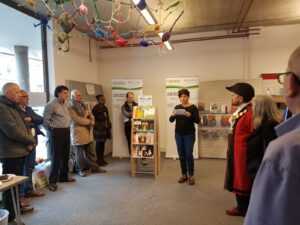

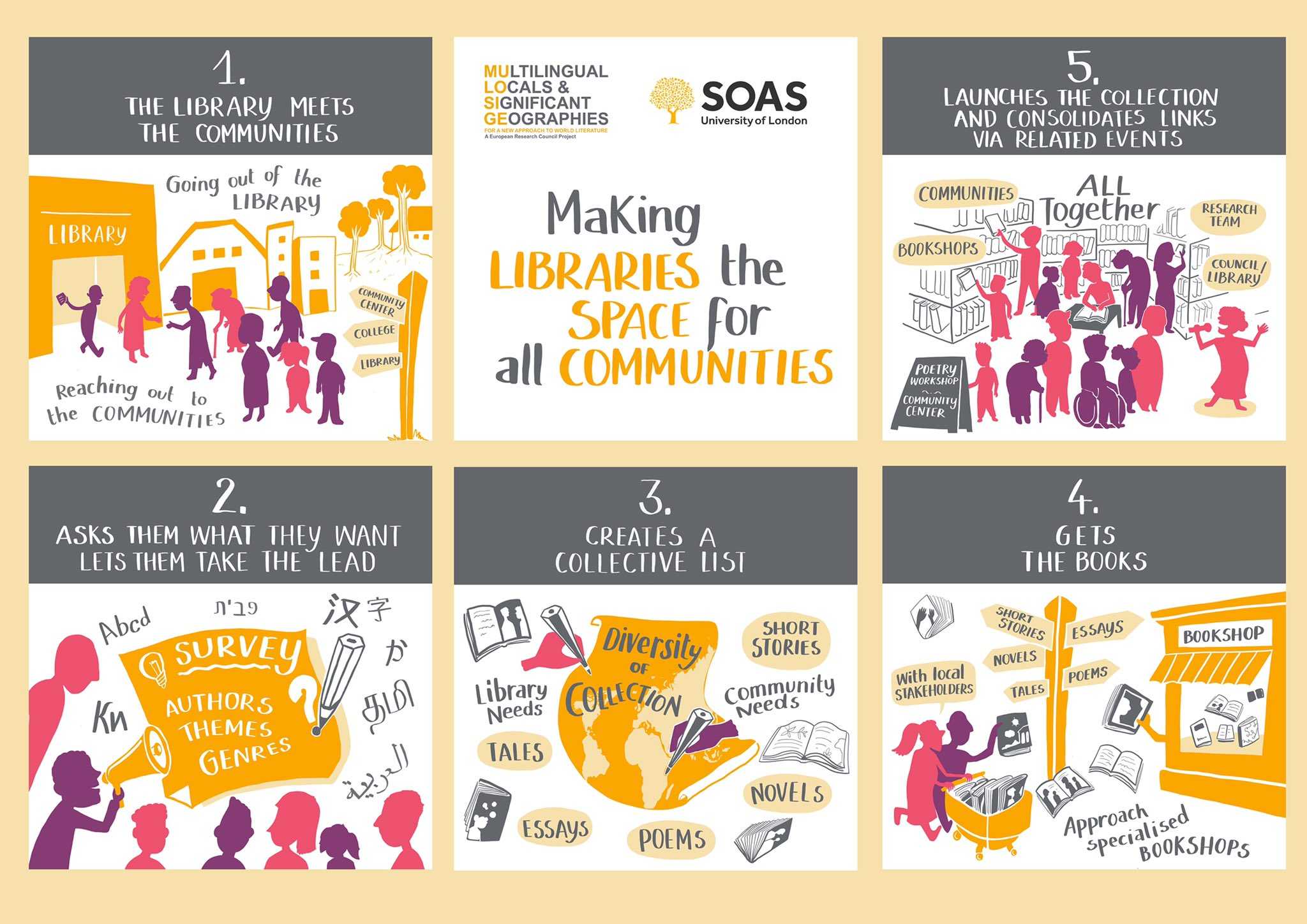
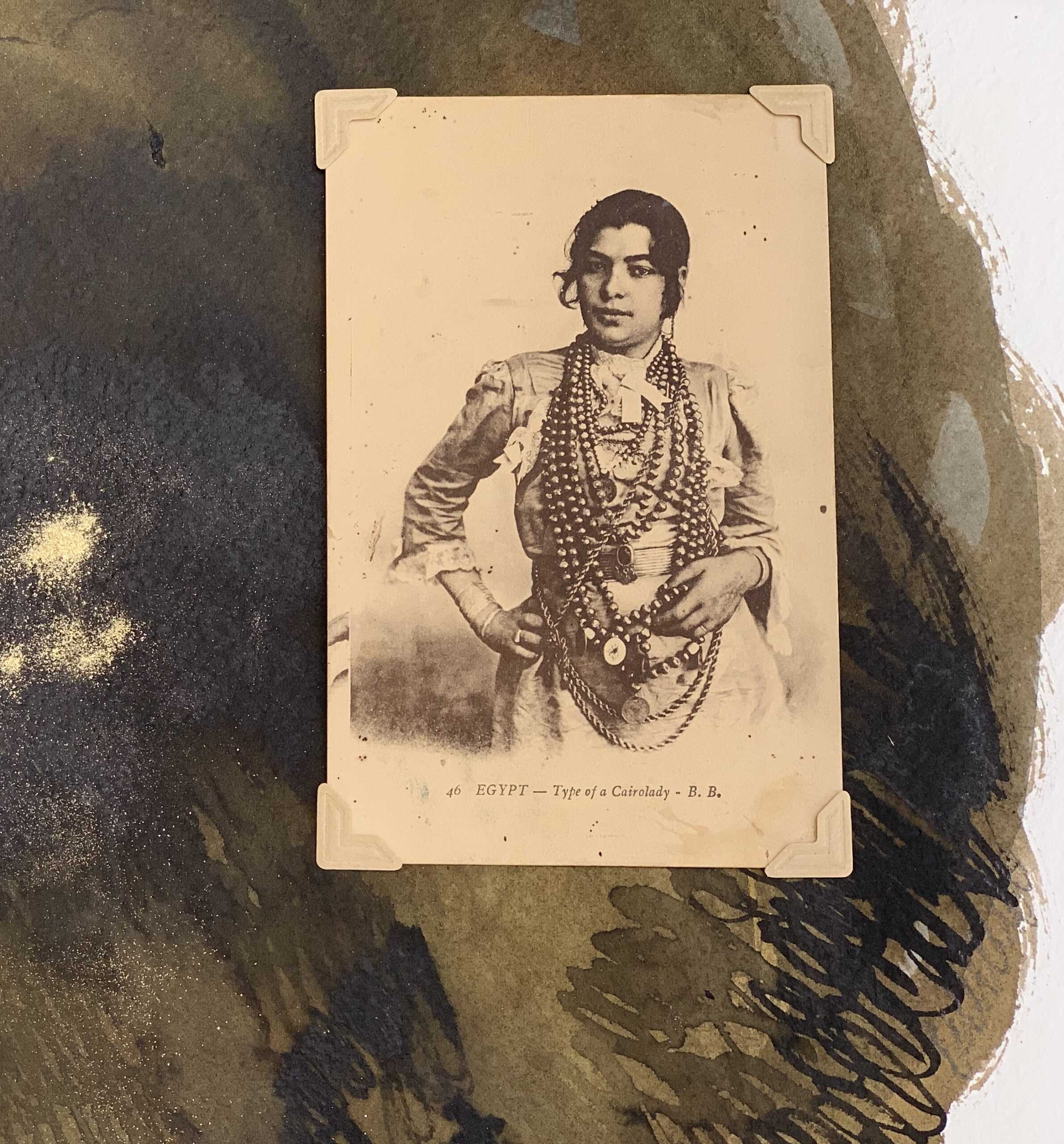
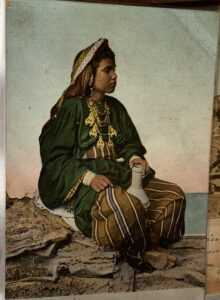 Worse was the discovery of the exploitation, subjugation and violence behind the constructed images of the women on these postcards from the Middle East and North Africa. Posted in the millions, possibly billions, images taken in the 1800s were still circulating around Europe into the1950s or even 1970s. I now have my own large collection of Egyptian colonial postcards of women that has led me to further explore the histories of the Nubians, the Ghawazee, Hungarian Egyptians, Turkish, Sudanese, Ethiopians, Armenians and Nigerians.
Worse was the discovery of the exploitation, subjugation and violence behind the constructed images of the women on these postcards from the Middle East and North Africa. Posted in the millions, possibly billions, images taken in the 1800s were still circulating around Europe into the1950s or even 1970s. I now have my own large collection of Egyptian colonial postcards of women that has led me to further explore the histories of the Nubians, the Ghawazee, Hungarian Egyptians, Turkish, Sudanese, Ethiopians, Armenians and Nigerians.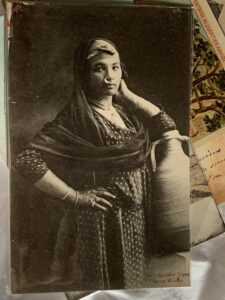 I founded ‘Making The Postcard Women’s Imaginarium’ project in August 2018 and so began Phase I of the project. I got in touch with other women artists as well as writers, poets, academics and thinkers who were all exploring identity within the context of the complex relationship between the East and West. I was keen to meet people with backgrounds that connected them to Britain and Europe and also to those places with colonial histories. I wanted it to be passionate and personal for each member.
I founded ‘Making The Postcard Women’s Imaginarium’ project in August 2018 and so began Phase I of the project. I got in touch with other women artists as well as writers, poets, academics and thinkers who were all exploring identity within the context of the complex relationship between the East and West. I was keen to meet people with backgrounds that connected them to Britain and Europe and also to those places with colonial histories. I wanted it to be passionate and personal for each member.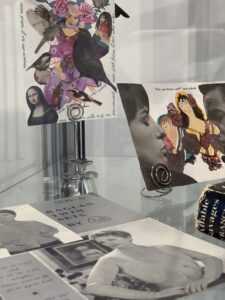 That is why we all decided not to show the postcard women directly in our work without some kind of artistic mediation or intervention. Each woman depicted on a postcard has an amazing presence that somehow reaches out beyond the attempts to portray her in a certain way and we were each responding to that in our own way.
That is why we all decided not to show the postcard women directly in our work without some kind of artistic mediation or intervention. Each woman depicted on a postcard has an amazing presence that somehow reaches out beyond the attempts to portray her in a certain way and we were each responding to that in our own way.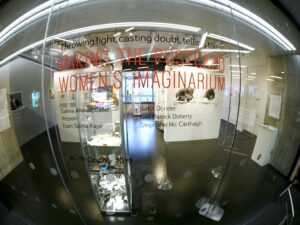
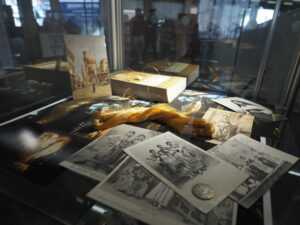
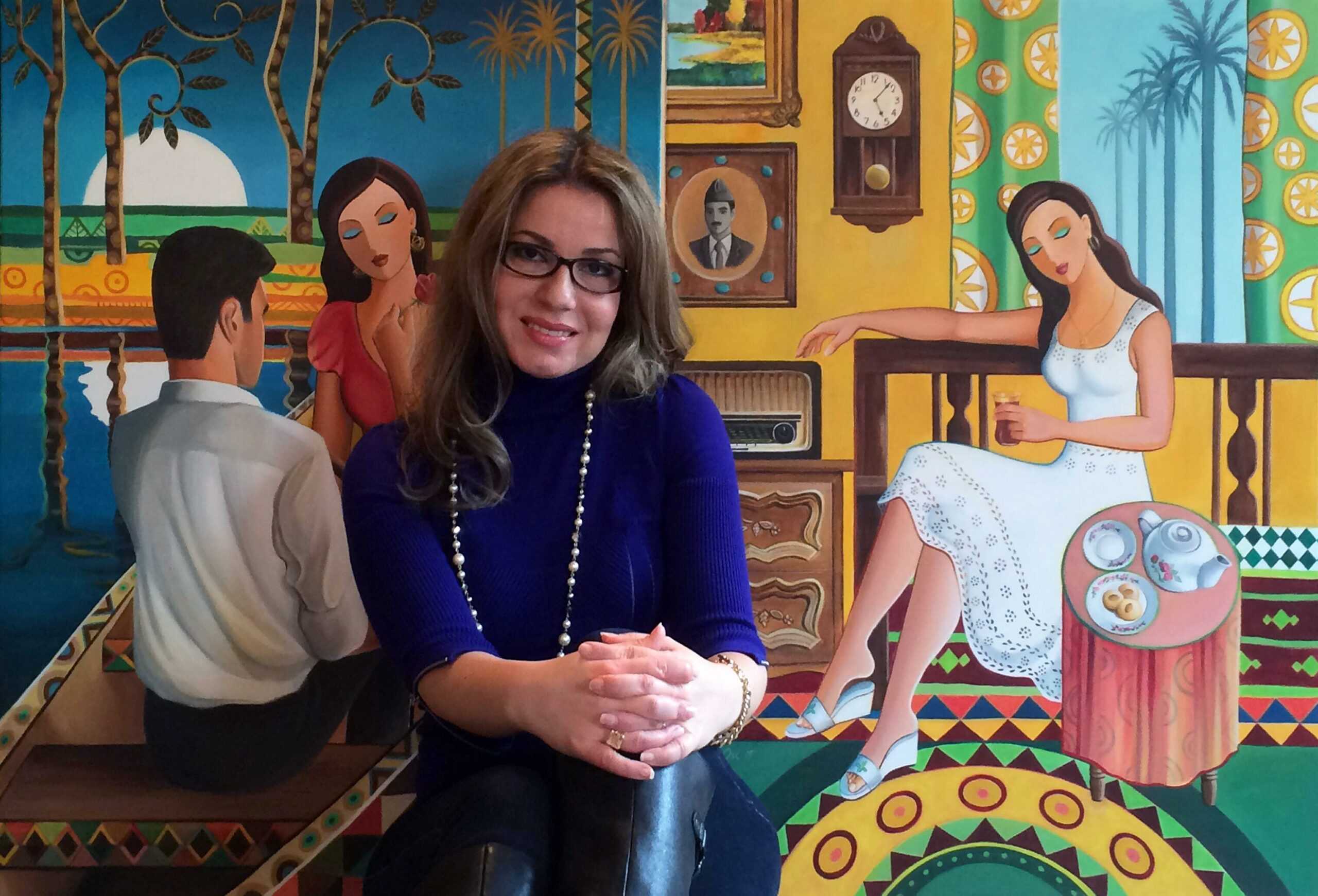
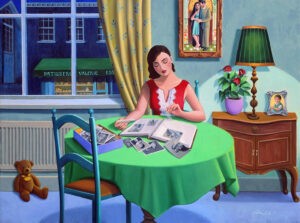
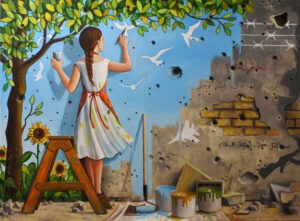
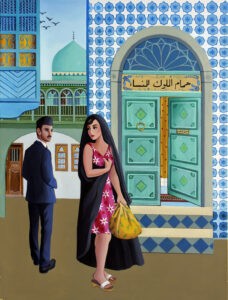
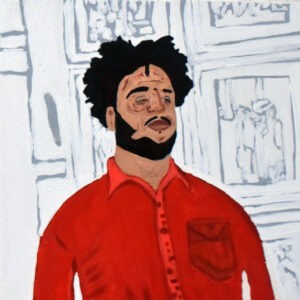
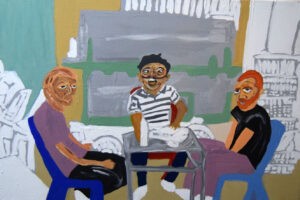 .
. 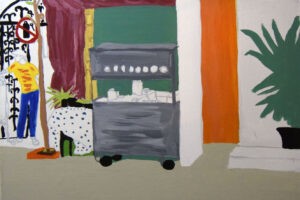
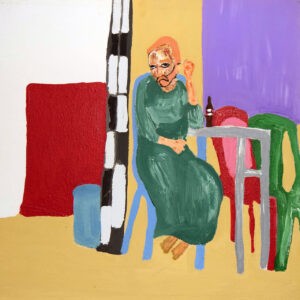 .
. 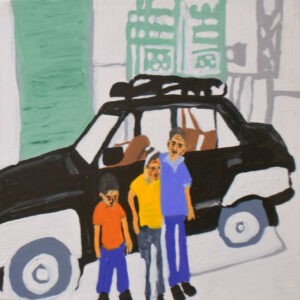
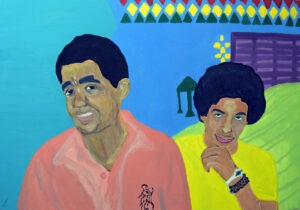
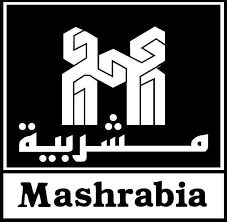 The gallery organises temporary exhibitions on a monthly basis, both at the gallery and in other venues in Egypt and abroad. Acting as a vibrant cultural incubator, the gallery also regularly hosts various artistic performances, lectures and discussions.
The gallery organises temporary exhibitions on a monthly basis, both at the gallery and in other venues in Egypt and abroad. Acting as a vibrant cultural incubator, the gallery also regularly hosts various artistic performances, lectures and discussions.